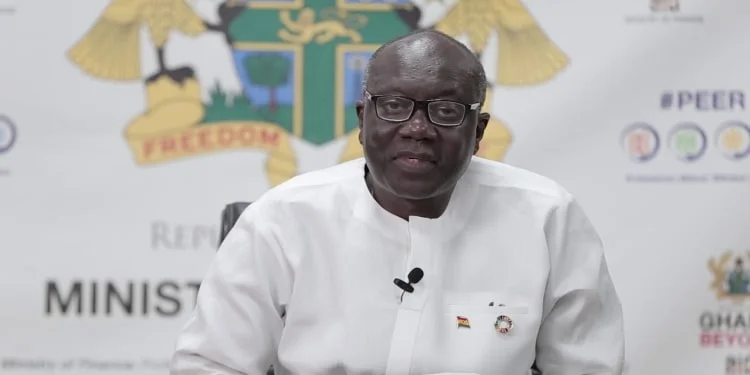On January 18, 2023, Ghana’s Minister of Finance, Ken Ofori-Atta, reaffirmed the voluntary nature of the country’s debt exchange programme during a meeting with individual bondholders in Accra. Addressing the nation’s economic challenges, Ofori-Atta emphasized that participation is optional, aiming to reassure citizens while outlining the government’s strategy to restructure its financial obligations amidst a crisis.
A Voluntary Approach to Economic Recovery
In his opening remarks, Ofori-Atta clarified that no bondholder is obligated to accept the programme’s terms. “It is a voluntary programme and the expectation is that we have an 80 percent participation and so, that should be factual for everybody,” he stated, setting a target to secure broad support. The initiative invites holders of approximately GH¢137 billion in domestic notes and bonds, including ESLA and Daakye bonds, to exchange them for a new package of bonds. This move is part of a broader effort to stabilize Ghana’s economy, which has been grappling with unsustainable debt levels.
Ofori-Atta also assured that the welfare of Ghanaians would be a priority in finalizing the programme. His comments reflect an attempt to balance fiscal restructuring with public interest, acknowledging the human impact of economic decisions. The programme’s launch has sparked varied reactions, with its voluntary framework intended to encourage cooperation rather than mandate compliance.
Challenges and Opposition
Despite the government’s intentions, the debt exchange programme has faced significant resistance. Labour groups have voiced strong opposition, successfully securing an exemption for pension funds, a critical concession amid concerns over retirees’ financial security. Additionally, several groups of individual bondholders have rejected the proposal, threatening legal action if they are not excluded. These bondholders argue that the programme could negatively affect their investments, highlighting a divide between government policy and public sentiment.
The uncertainty surrounding participation levels adds complexity to the initiative. As of January 2023, it remains unclear how many institutions and individuals have opted into the programme, leaving the government’s 80 percent target in question. This lack of clarity underscores the challenges of implementing such a sweeping financial restructuring.
A Path Forward Amid Economic Strain
The debt exchange programme is a cornerstone of Ghana’s strategy to address its economic woes, which have been exacerbated by global financial pressures and domestic fiscal issues. By targeting an 80 percent participation rate, the government hopes to gain sufficient traction to renegotiate its debt burden effectively. Ofori-Atta’s assurance of considering public welfare suggests an openness to dialogue, though the opposition from bondholders and labour groups indicates that negotiations will be contentious.
The meeting with individual bondholders marks an early step in engaging stakeholders, but the road ahead requires careful navigation. The programme’s success hinges on building trust and addressing the concerns of those who feel threatened by its implications. As Ghana moves forward, the voluntary nature of the initiative will be tested by the willingness of bondholders to participate.






